CPJ calls on Ukraine to not revoke Inter broadcasting license
New York, May 29, 2015–The Committee to Protect Journalists calls on Ukrainian authorities to allow national television channel Inter to continue broadcasting freely and to investigate why its signal has been jammed. Parliamentary criticism of the station has led the National Television and Radio Broadcasting Council of Ukraine to conduct a review of Inter’s license,…

In Venezuela, Tal Cual under pressure but not defeated
Tal Cual, one of the few remaining Venezuelan newspapers critical of the government, is so shorthanded there’s often no receptionist on hand to let people in. Visitors must bang on the front door until someone in the newsroom notices. That can take a while because there are hardly any editors or journalists left.
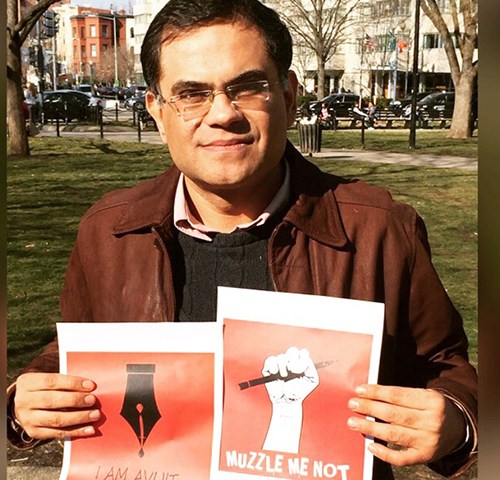
A year after Raza Rumi attack, little change for Pakistan’s beleaguered press
One year ago Raza Rumi, a TV anchor and widely-respected analyst in Pakistan, narrowly escaped death when gunmen opened fire on his car in an attack that killed his driver, Mustafa. When I wrote about the March 28 attack, the fourth on the Express Group in eight months that had left four people dead, I…
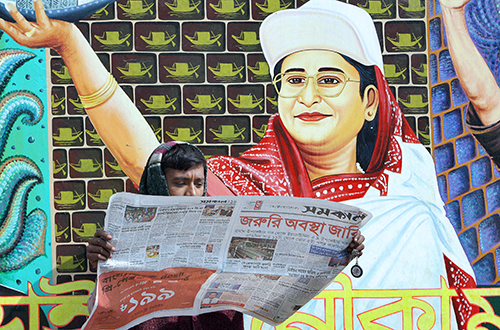
Mission Journal: Bangladeshi press reined in as Hasina exerts authority
Matiur Rahman Chowdhury has been the host of “Frontline,” a popular Bangla-language news show, for five years. Aired live three times a week, the show gained notoriety for bringing politicians, members of civil society, and journalists together to discuss current affairs. Chowdhury distinguished himself from many of his counterparts with his soft-spoken but firm demeanor…
Honoring courage and defying repression
CPJ’s 2013 International Press Freedom AwardsNew York, November 6, 2013 — Four outstanding journalists who have endured and defied media repression in Ecuador, Egypt, Turkey, and Vietnam will be honored with the Committee to Protect Journalists’ 2013 International Press Freedom Awards, an annual recognition of courageous journalism. All have faced recrimination for their work, including…
Release of Chinese journalist Shi Tao was long overdue
New York, September 9, 2013–The Committee to Protect Journalists welcomes the early release of journalist Shi Tao, who was first detained in 2004 and sentenced to 10 years in prison in 2005 on charges of “leaking state secrets abroad.” Shi was released on August 23, according to an announcement on Sunday by Zhang Yu, the…
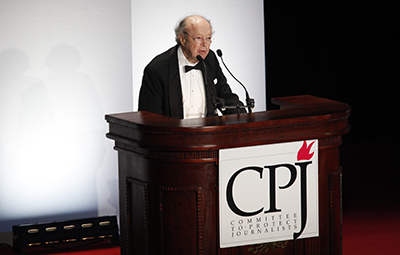
Tony Lewis gave CPJ authority, devotion over decades
Back in 1981, when CPJ was being formed and its board of directors assembled, Tony Lewis, who died today at age 85, was one of the first people we approached. As the author of books such as Gideon’s Trumpet, as a widely read columnist for The New York Times, and as an outspoken defender of…
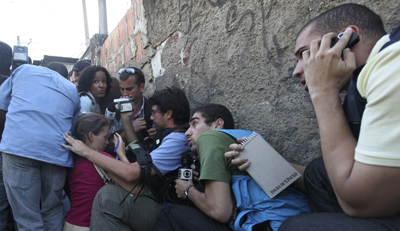
Brazil murders reflect tough reporting, lack of justice
There are many complex reasons why Brazil has become a dangerous place to practice journalism. I will cite two possible explanations for the increase in deaths of journalists in the country, where seven journalists have been confirmed killed for the work over the past two years. First, the press is producing more investigative reports on…
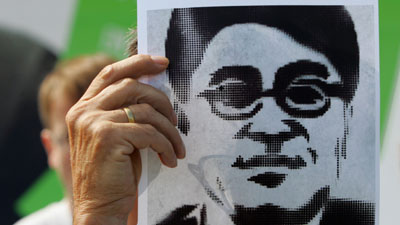
As Wang is freed, Chinese journalist Shi Tao still held
Chinese dissident Wang Xiaoning was released today after serving a 10-year prison term on charges of “incitement to subvert state power,” a case built in good part on client information supplied by Yahoo. Wang had used his Yahoo email account and the discussion forum Yahoo Groups to spread ideas the government deemed dangerous. His case…
Attacks on the Press 2003: Algeria
With Algerians preparing for the April 2004 presidential election , the government of President Abdelaziz Bouteflika, who has always had a contentious relationship with the media, took steps to restrict press freedom. Since 1990, when the first private newspapers were allowed in Algeria, the media and the government have engaged in a tug-of-war. In 2003,…